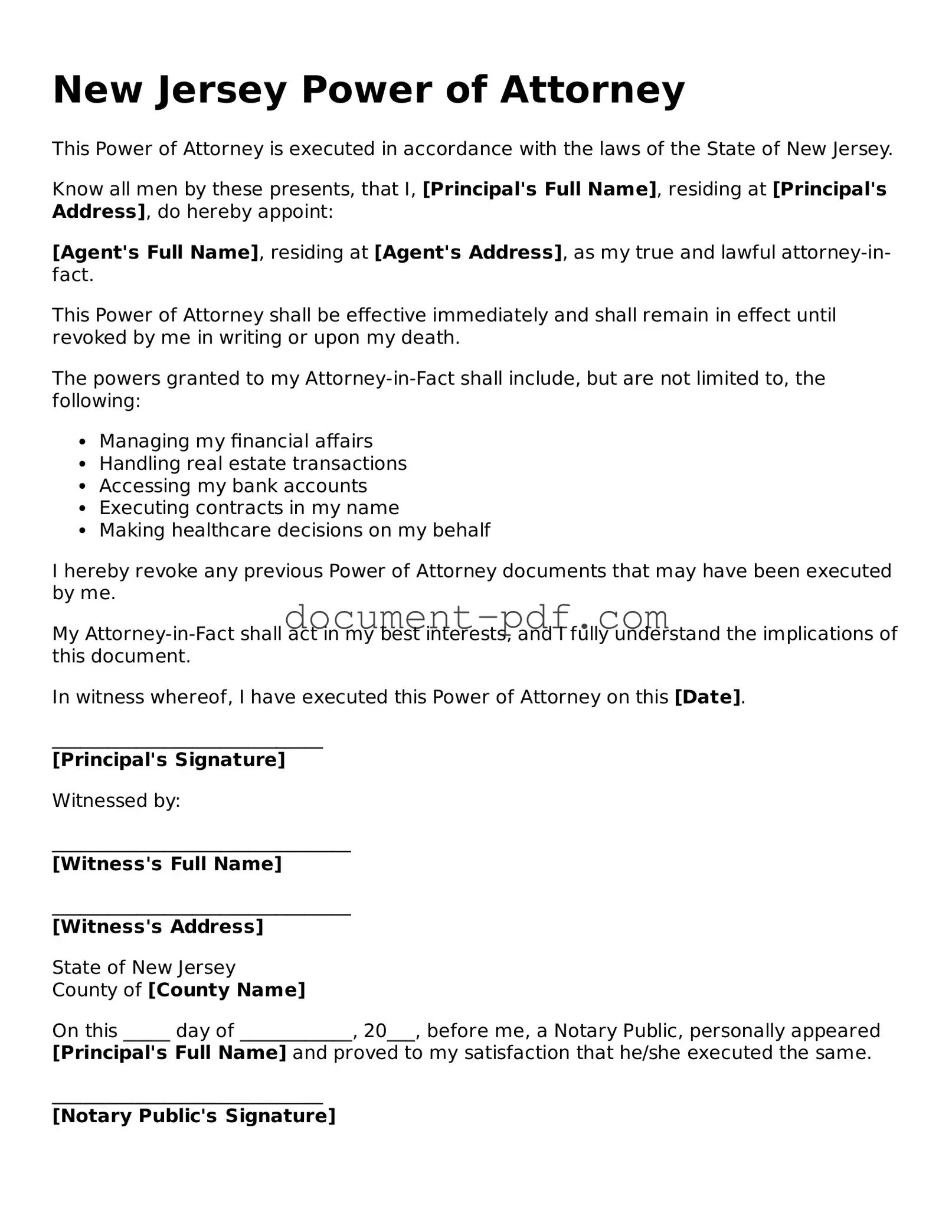Attorney-Verified New Jersey Power of Attorney Template
The New Jersey Power of Attorney form is a legal document that allows one person to appoint another to make decisions on their behalf. This form can cover financial matters, healthcare decisions, or both, depending on the needs of the individual. Understanding how to properly fill out this form is crucial for ensuring your wishes are honored.
Ready to take control of your future? Fill out the Power of Attorney form by clicking the button below.
Access Power of Attorney Editor Here

Attorney-Verified New Jersey Power of Attorney Template
Access Power of Attorney Editor Here
Finish the form without slowing down
Edit your Power of Attorney online and download the finished file.
Access Power of Attorney Editor Here
or
Click for PDF Form
